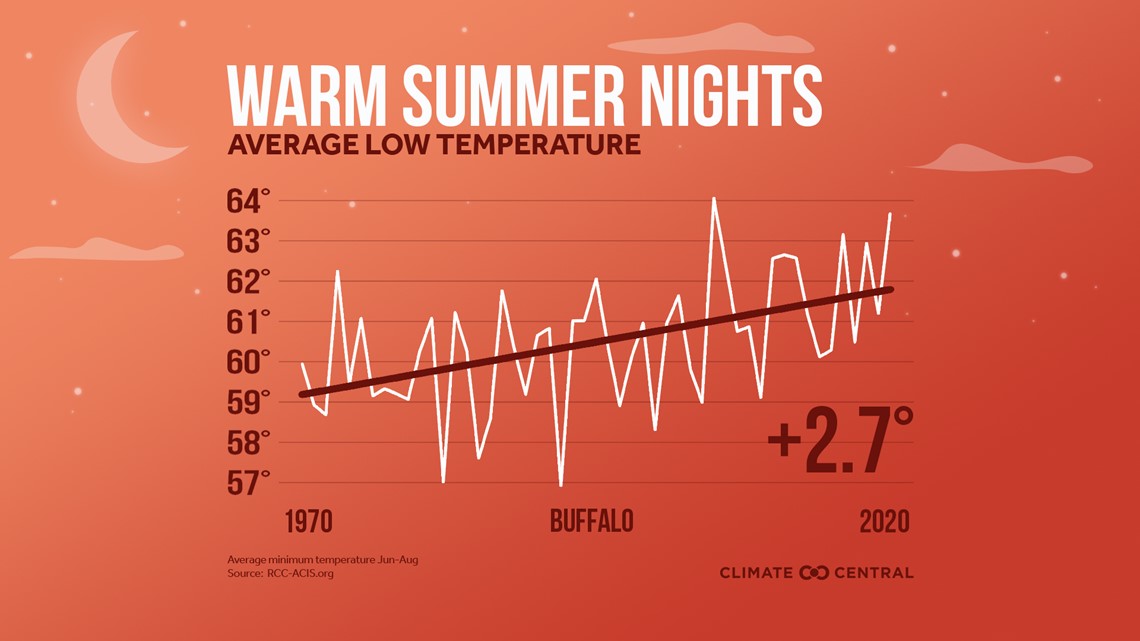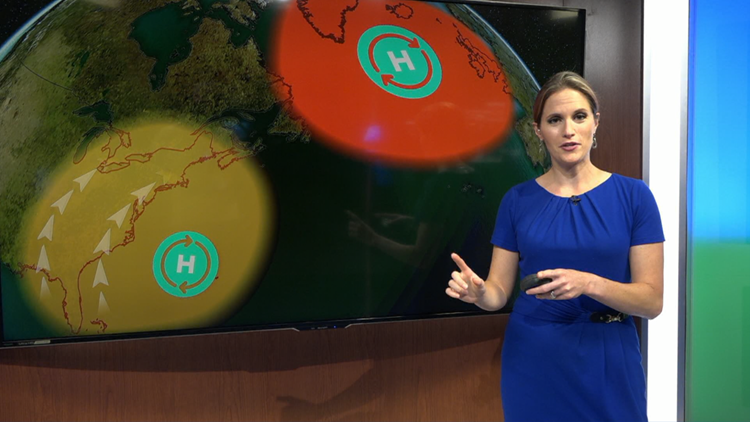BUFFALO, N.Y. — Summer 2020 set a lot of impressive records including taking the number two spot on the “all-time hottest summers” list with a three-month average temperature of 72.7 degrees.
There were 11 days with temperatures in the 90s.
By those stats, summer 2021 wasn’t quite as hot, but my goodness, it was incredibly humid, especially in August. According to data gathered by Iowa State University, the dew point at the Buffalo Niagara International Airport spent more than 200 hours at 70 degrees or higher. That is a lot of time spent stewing in sticky, tropical air. That’s Buffalo’s most humid August since at least 1943.
Between July 1 and August 31, the span of meteorological summer, 31 days had a dew point reach at least 70 degrees for at least one hour of the day.
When the weather feels humid, it’s because the lowest layer of the atmosphere has a lot of water vapor. When that’s the case, the air cools down much more slowly. So all of this recent humidity has kept overnight temperatures almost overwhelmingly warm.
Six nights this summer have set a new record warm low temperature for the date. There was a record-tying 24 nights that had temperatures stay in the 70s.
A trend of increasing overnight temperatures isn’t new, it’s been happening for several decades. Data gathered by Climate Central that Buffalo’s average summer night time low temperature has risen 2.7 degrees since 1970. That’s as of 2020. Back in 2018 the rate of increase was 2.4 degrees. So not only are summer nights continuing to get warmer, they’re getting warmer faster.


Warming summer nights pose a real threat during heat waves, especially to vulnerable populations. That’s because cooler nights can provide at least a little bit of a break during a stretch of sweltering weather. But if that break doesn’t come, our bodies are put under additional stress. The power grid is too, by the way, as the demand for air conditioning increases.
New episodes of Heather’s Weather Whys are posted to the WGRZ YouTube channel every Wednesday evening.
If you have a weather question for me to answer, send it to heather.waldman@wgrz.com or connect with me on Facebook or Twitter.



